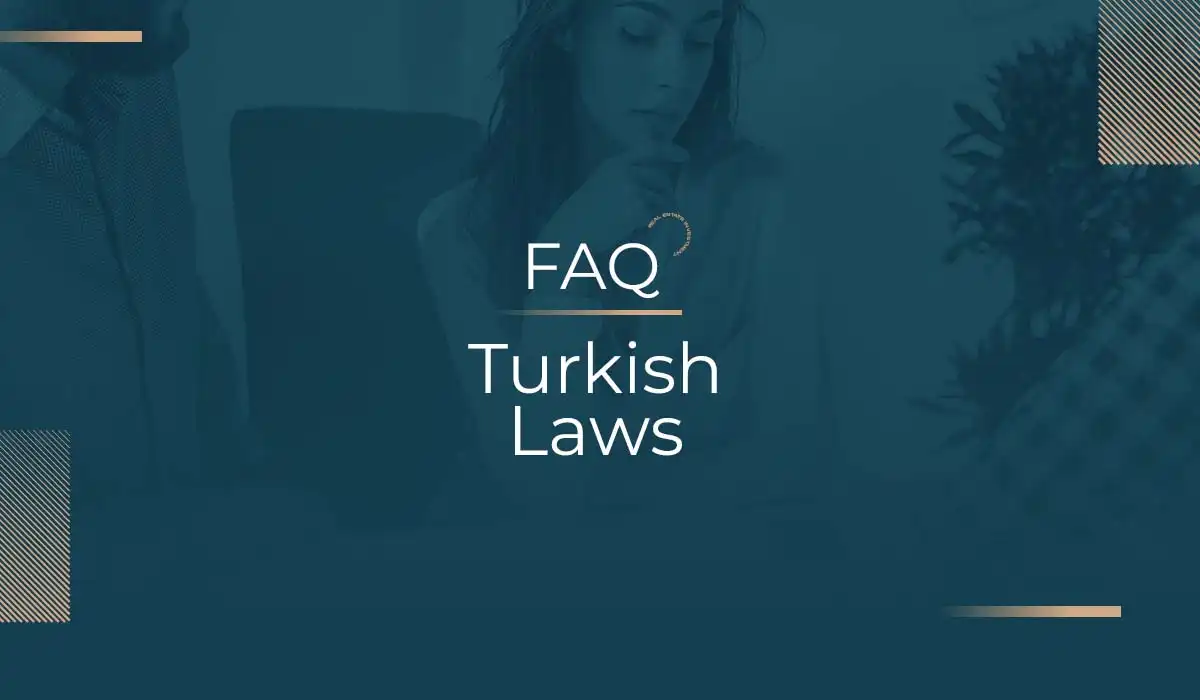Turkish Laws FAQ
Yes, you can open a bank account even if you are renting a home.
You must pay income tax, value-added tax, and property tax if you own property.
Yes, foreigners can obtain bank loans to purchase property in Turkey. Loans are provided based on the terms and guarantees specified by the bank.
The main taxes in Turkey include income tax, corporate tax, value-added tax (VAT), and property tax.
Income tax is imposed based on a tiered system, where the rate ranges from 15% to 40% depending on the level of income.
The corporate tax rate in Turkey is currently 25%, and the rate may vary for certain types of companies or beneficiaries.
The Value Added Tax (VAT) is a tax on the consumption of goods and services, typically at a rate of 20%. However, some goods and services are subject to reduced rates such as 1% or 8%.
An annual property tax, known as property tax, is imposed, and the rate varies depending on the location and type of property, usually between 0.1% and 0.6%.
Yes, there are tax exemptions for certain cases such as first-time apartment purchases or some exceptional projects that the government aims to encourage.
Foreign investors need to register with the tax authority in Turkey and must file tax returns in accordance with local tax laws.
Yes, rental income from properties is taxed, and property owners are required to file a tax return for these earnings.
Yes, a tax is imposed on profits from the sale of properties, known as capital gains tax, which is a percentage of the profits earned.
The Turkish government has mandated that anyone wishing to purchase property in Turkey must have the property appraised by specialized entities when obtaining the title deed. This applies regardless of the type of property and whether the purchase is for obtaining Turkish citizenship, residency, or investment.
The real estate appraisal report includes information such as the property's area, type (commercial or residential), age of the building, views, social facilities within the project, services offered to residents, quality of finishes, the legal status of the project (whether licensed or not), and finally, a comparison between the property's price and nearby properties in the area.
Foreigners do pay property taxes in Turkey, which can be settled in cash or other payment methods. Often, foreigners open bank accounts in Turkey before purchasing properties to facilitate real estate transactions and tax payments without restrictions.
Real estate appraisal is the process of determining the property's market value, which is important for setting a fair price for buying or selling.
If you have been living in Turkey continuously for at least eight years with a residence permit issued by the Turkish authorities, you can apply for a long-term Turkish residence permit, which grants indefinite residency.
This tax amounts to 4% of the total value of the property as recorded in the sale contract and is paid upon registering the title deed at the land registry office in Turkey.
- The buyer must be a foreign non-resident in Turkey, or a Turk residing abroad for six months or more.
- The property must be new.
- The property cannot be sold for one year from the date of purchase.
- The property must be purchased with foreign currency such as the U.S. dollar or euro.
- The purchase amount must be transferred from a bank outside Turkey to a Turkish bank or brought in through a Turkish airport.
Yes, foreigners can establish and open a company in Turkey. Foreign investors are treated equally with Turkish investors, allowing them to establish and open all types of companies that Turks can.
- A translated and notarized copy of the passport in Turkish, with a validity of more than 6 months, and an entry stamp to Turkey.
- Tax identification number.
- Three personal photos.
It is an important legal document that allows individuals to grant another person the right to act on their behalf, which may include signing contracts, conducting financial transactions, managing properties, and representing them in legal matters.
The grantor has the right to cancel the power of attorney at any time, provided that they are of sound mind and capable of making such decisions. The revocation process includes documenting a new document that explicitly states the termination of the agent's authority.
The applicant must be over 18 years old.
The applicant must have an original passport valid for at least 3 months.
A translated copy of the passport to Turkish, notarized by the notary (noter) in Turkey.
Two personal photos with a white background taken within the last 6 months, preferably in electronic file format.
A tax number, obtained from the Turkish tax office.
Property tax in Turkey can be paid in two different ways. The first involves payment directly at the municipality building where the properties are registered, and the second way allows for payment through the municipality's official website, transferring the due amount to the municipality's official bank account.
The institution known specifically as the noter is an entity authorized by the state to organize and notarize official documents.
The fees vary depending on the type of service and the number of documents being notarized.
In Turkey, title deeds or "tapu" refer to the legal documents that prove a person's ownership of a specific property in Turkey. These deeds are essential to the land registry system in Turkey, where every property ownership is documented. Title deeds protect the owner's rights and contain information such as the owner's name, property location, and detailed information about the property, such as size and permitted uses.
For residential properties, the deeds detail ownership of residential buildings or apartments and typically include information on the permissible residential use of the property.
This category includes commercial buildings such as shops, offices, industrial buildings, and other commercial facilities. These deeds contain information about the permissible commercial use of the property and the necessary licenses.









